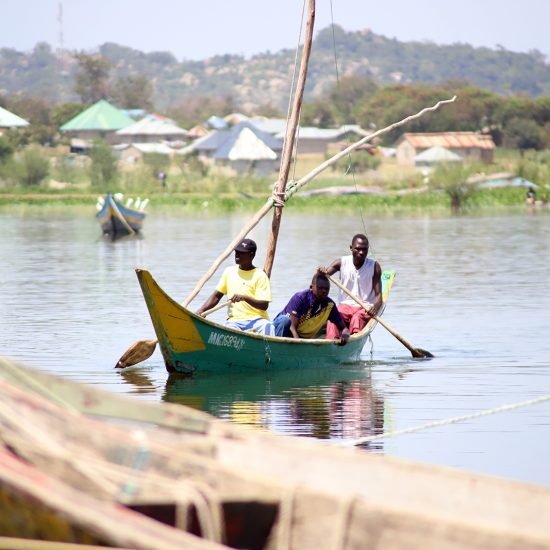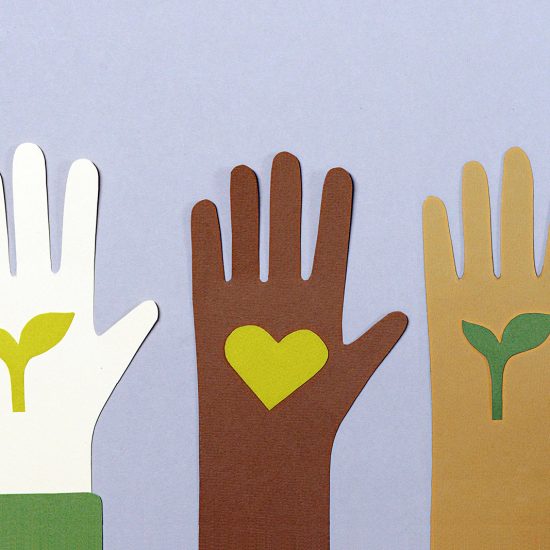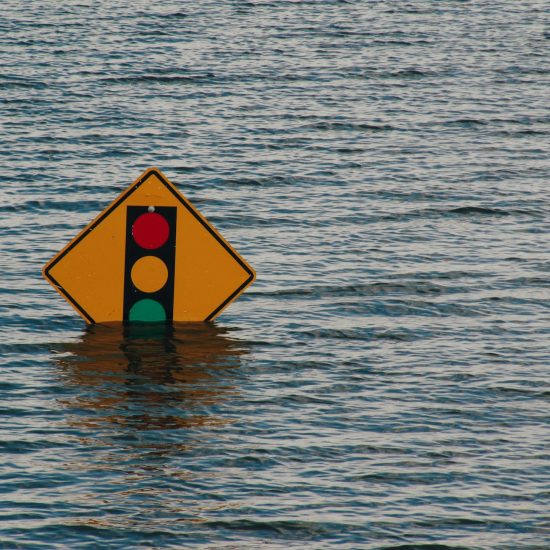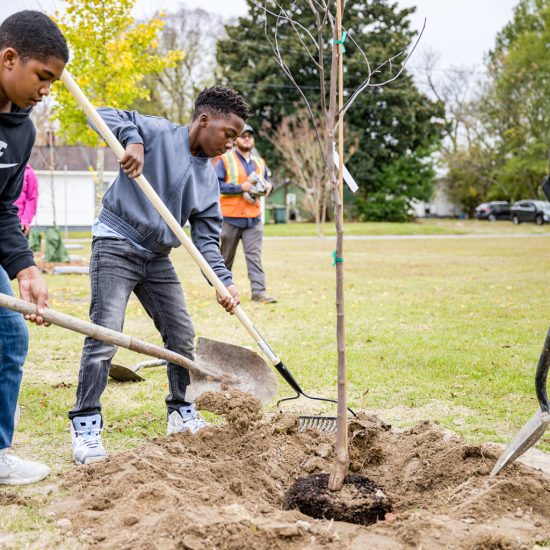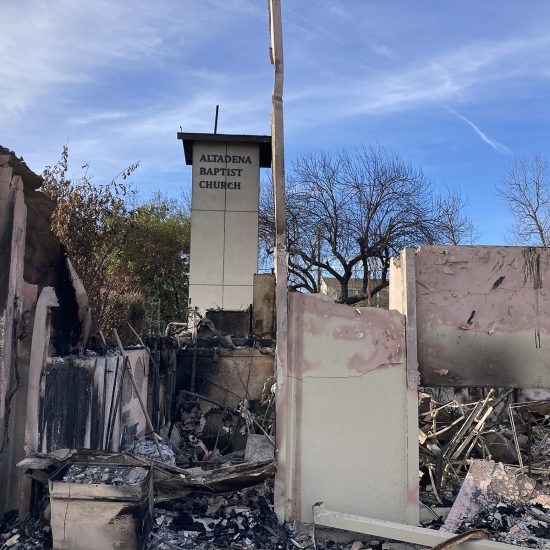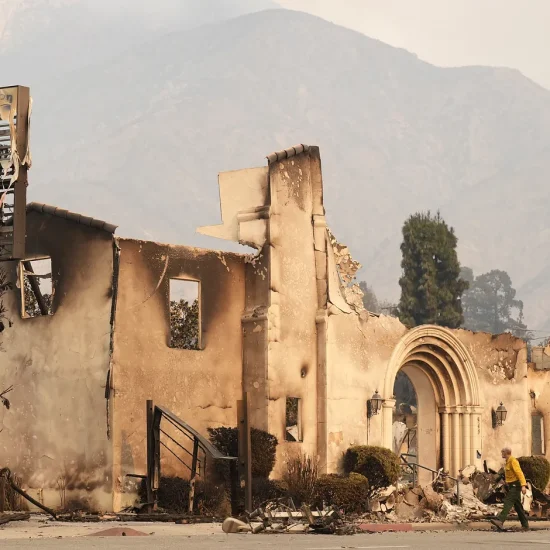As millennials — people born in the 1980s and ’90s — consider issues of faith and science, environmental issues are among their primary concerns. Recent polls suggest millennials are concerned about climate change and see environmental public policy actions as a priority.
 Recent polls suggest millennials are concerned about climate change and see environmental public policy as a priority. (Shutterstock)Aaron Weaver, communications manager for the Cooperative Baptist Fellowship, sees his generation — millennials — changing the prioritization of environmental issues.
Recent polls suggest millennials are concerned about climate change and see environmental public policy as a priority. (Shutterstock)Aaron Weaver, communications manager for the Cooperative Baptist Fellowship, sees his generation — millennials — changing the prioritization of environmental issues.
“We’ve seen that millennials put a higher priority on environmental issues than previous generations,” he explained. “While studies have shown that millennials tend to eschew the ‘environmentalist’ label and the pejorative nature that term has taken on, we still place a premium on sustainability and how we as individuals and as communities can more responsibly care for creation.”
As a graduate student at Baylor University, Weaver studied Baptist positions on environmental issues, with his 2013 doctoral dissertation on “Baptist environmentalisms: A comparison of American Baptist and Southern Baptist attitudes, actions and approaches toward environmental issues.”
“American Baptists preached and practiced an environmentalism that sought strict environmental regulations and was defined by an eco-justice ethic emphasizing the interconnectedness of humans with their environment,” Weaver noted in his dissertation.
“Southern Baptists abandoned the ethic of previous decades and replaced it with a decidedly more conservative ethic that continued to utilize the language of stewardship but was increasingly anthropocentric and strikingly development-focused. Also, an anti-regulation philosophy and skepticism of prevailing scientific viewpoints characterized their environmentalism.”
Jonathan Merritt, another Baptist millennial attracted to environmental issues, similarly sees a generational shift in attitudes. While a student at Southeastern Baptist Theological Seminary, Merritt launched the “Southern Baptist Environment & Climate Initiative.”
Although the group’s declaration received the signatures of several Southern Baptist leaders, it also received criticism from other Southern Baptist leaders.
“Ninety-nine percent of the negative reactions I got was from older individuals,” said Merritt, who added that was not a scientific poll but came from anecdotal evidence.
Merritt later wrote the book “Green like God” to push for greater environmental concern among Christians.
Looking back to the 1970s and 1980s, Merritt thinks that “renewed interest in eschatology” and “many predictions of the end of the world” impacted how some Christians thought about environmental issues. Such concerns led some Christians to wonder why they should be “worried about preserving an earth that many of them believe will be burned up soon anyway.”
Robert Parham, executive director of the Baptist Center for Ethics, has long advocated for environmental issues. His 1992 book “Loving neighbors across time: Christian guide to protecting the Earth” was only the second book by a Southern Baptist to tackle environmental concerns (after Henlee Barnette two decades earlier). Parham, now a Cooperative Baptist, still believes Christians need to address environmental issues and he critiques pastors who reject scientific findings on climate change.
“Pastors need to be moral theologians, not pretend to be scientists,” he said. “They need to speak from their source of moral authority, the Bible, which has the moral imperative to care for the earth. The science on climate change is settled. What is unsettled in many churches is the moral certainly about caring for the environment.”
Weaver of CBF similarly sees the need for pastors to lead churches in considering environmental issues.
“People in the pews need to hear from their pastors on environmental topics and how stewardship or caring for God’s creation is integrally connected to our active concern for those living in poverty,” he explained.
“Clergy and laypersons need opportunities for discussion about what a biblical ethic of stewardship requires of us as individuals and congregations beyond buying energy-efficient light bulbs and ditching the Styrofoam coffee cups.”
The next conversation on issues of faith, science and the environment might be launched by Roman Catholic Pope Francis. Francis released an encyclical or doctrinal letter on environmental issues on June 18. Merritt doubts Francis will impact the thoughts of Baptists in the U.S., but both Parham and Weaver are optimistic.
“Pope Francis’ encyclical on the environment is titled in Latin, Laudato Sii: Sulla cura della casa comune, which in English is ‘Be Praised: On the Care of the Common Home,’” Parham explained. “[Francis] is the world’s leading moral authority and head of the largest branch of Christianity. What he says matters.
“His encyclical will be circulated to 5,000 Catholic bishops and 400,000 priests,” Parham added. “They, in turn, will share the letter with 1.2 billion Catholics. A billion Catholics, who see the moral imperative to address climate change, will outweigh the billionaires who finance the global warming deniers.”
Weaver sees the encyclical as “a great opportunity to restart conversations on environmental issues in our faith communities.” He regrets “political cultural polarization” over the past several years that interrupted “an emerging consensus among Christians, including some conservative evangelicals, on the need to take environmental issues more seriously — especially the problem of climate change.”
“I hope the moral framework that Pope Francis offers in his encyclical will prompt people of faith to think about environmental issues in new and holistic ways,” Weaver added.
“And for my fellow Baptists, cause us to recall the ethical wisdom of theological voices from our own tradition, such as [Southern Baptist] Henlee Barnette and [American Baptist] Jitsuo Morikawa. What should a 21st-century Baptist environmental ethic look like in terms of our personal practices as well as our public policy commitments?”
Brian Kaylor is a freelance author based in Jefferson City, Mo.

